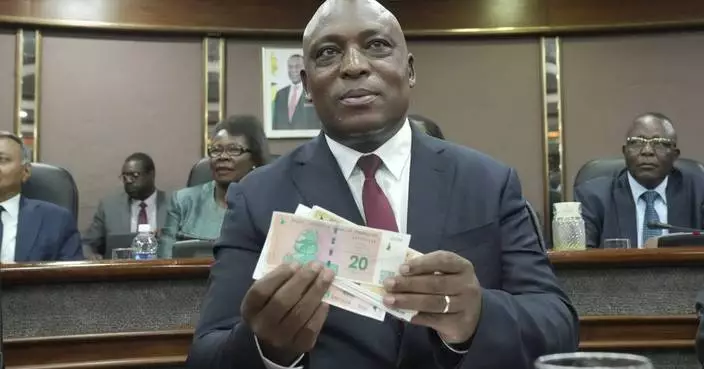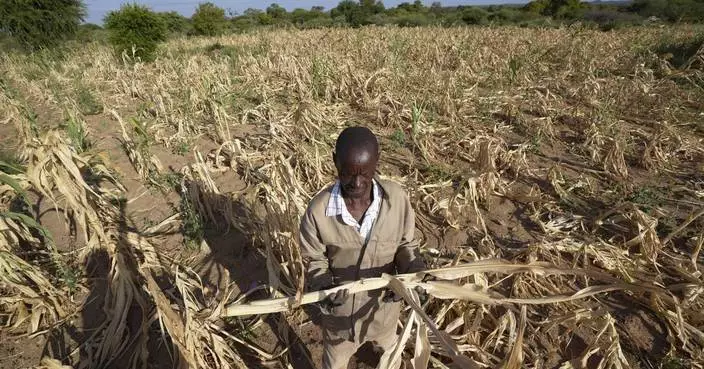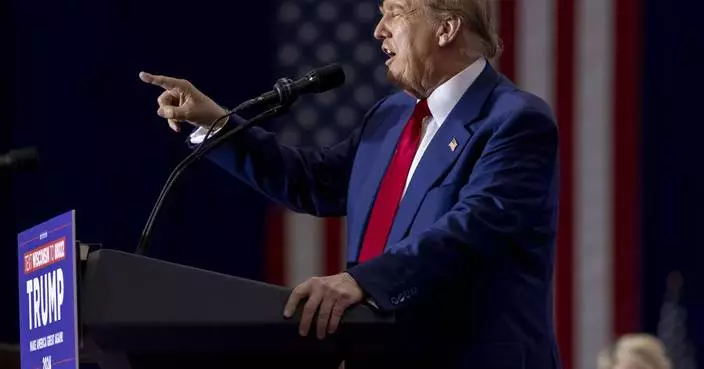The Trump's government has reversed a ban on importing trophies from elephants killed in Zimbabwe and Zambia. The action raised a global outcry from wildlife organisations all over the world.
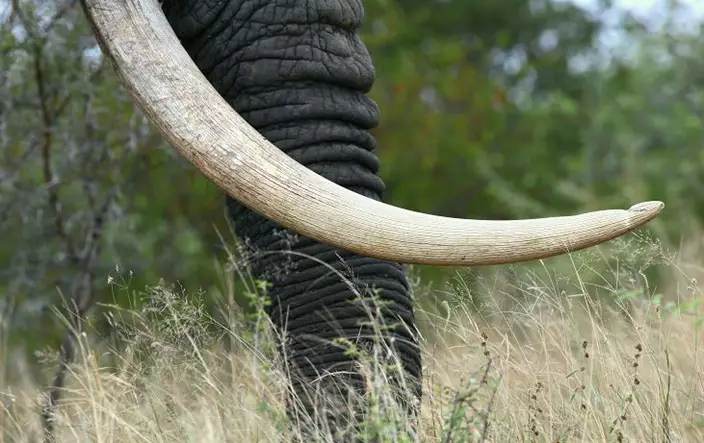
Photo via flickr
In 2014, the Obama administration made the move to ban the import and was a hit to the international activities to end the ivory trade, whose backers include Prince Harry and Prince William.
Click to Gallery
The Trump's government has reversed a ban on importing trophies from elephants killed in Zimbabwe and Zambia. The action raised a global outcry from wildlife organisations all over the world.
In 2014, the Obama administration made the move to ban the import and was a hit to the international activities to end the ivory trade, whose backers include Prince Harry and Prince William.
Hunting and killing elephants are legal in parts of Africa, even they are endangered species. The Trump administration said they will help manage their population numbers.
Kenya, based organisation Save the Elephants also condemned the action, said chief executive Frank Pope, "How someone could want to shoot such an intelligent, empathetic animal as an elephant is beyond me."
The president's two sons, Donald Jr and Eric Trump, were strongly criticised in 2012 after being captured with a leopard and other hunting game kills including an elephant.
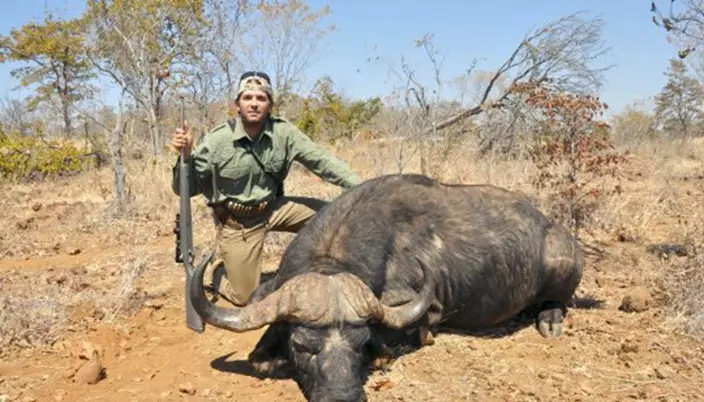
Online photo
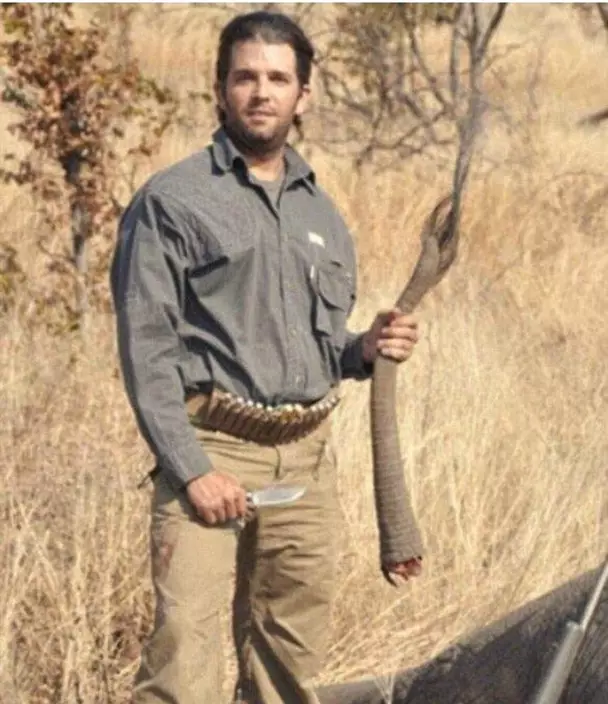
Online photo
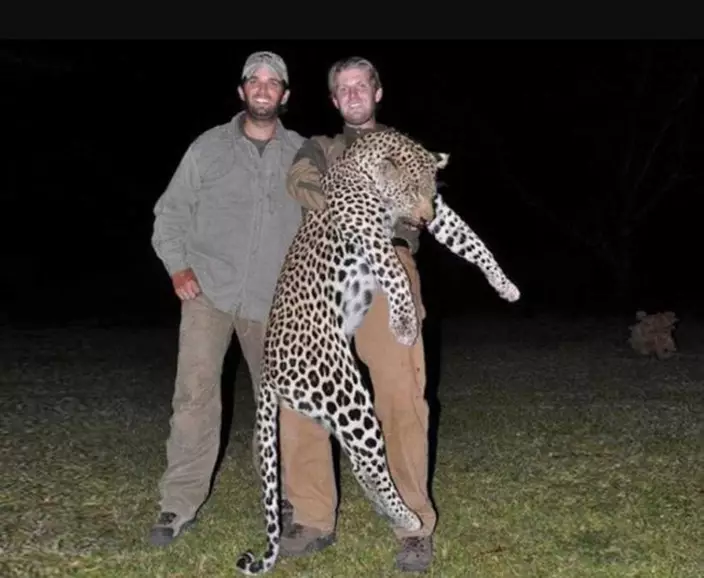
Online photo
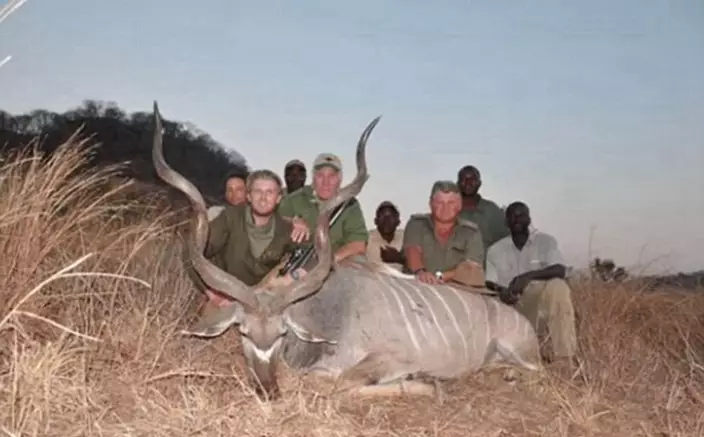
Online photo
Hunting and killing elephants are legal in parts of Africa, even they are endangered species. The Trump administration said they will help manage their population numbers.
But wildlife organisations disagree the corrupt officials, especially in Zimbabwe where dictator Robert Mugabe was deposed in a coup this week, saying they cannot be trusted to protect elephants.
There are different comments from various parties inside and outside the country.
In the statement from the US Fishing and Wildlife Service accepting the decision said, "Legal, well-regulated sport hunting as part of a sound management program can benefit the conservation of certain species by providing incentives to local communities to conserve the species and by putting much-needed revenue back into conservation."
Wildlife organisation across the world have condemned the decision and say it will only boost illegal hunting of elephants.
The Humane Society of the United States said banning trophies from Zimbabwe should continue because it is "one of the most corrupt countries on Earth".
Wayne Pacelle, president and chief executive, said, "It's a venal and nefarious pay-to-slay arrangement that Zimbabwe has set up with the trophy hunting industry."
Charlie Mayhew, chief executive of UK charity Tusk, said, "Tusk views this announcement as a regressive step which sends all the wrong signals to the international community that has been making great strides recently in the campaign to halt the illegal wildlife trade."
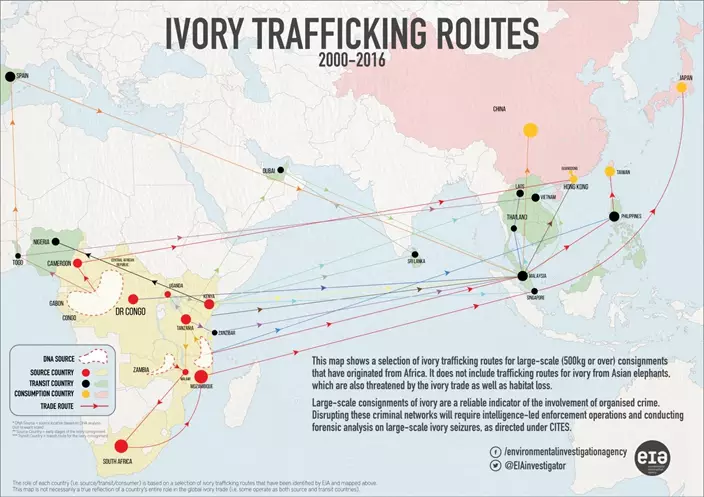
Kenya, based organisation Save the Elephants also condemned the action, said chief executive Frank Pope, "How someone could want to shoot such an intelligent, empathetic animal as an elephant is beyond me."
"But what is most concerning for elephants is that renewed imports of trophy ivory into the US might undermine the all-important ivory trade bans put in place by America and China."
The Elephant Project tweeted its critizism towards the ban, "Reprehensible behaviour by the Trump Admin. 100 elephants a day are already killed. This will lead to more poaching."
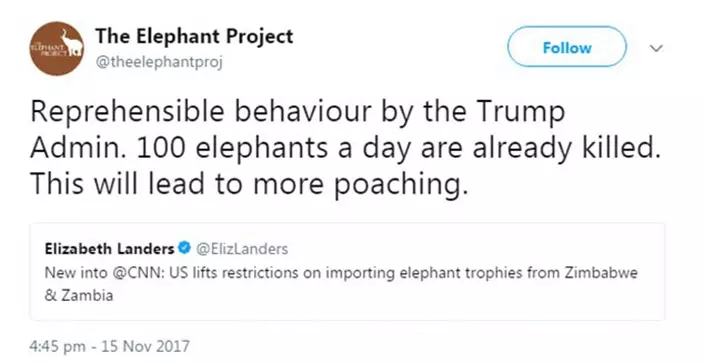
It was estimated there were four to five million African elephants and hundred-thousand Asian elephants in the wild in early 20th Century. There are now 350,000 remaining elephants on the African Savanna.
In Asia, an estimation of 35,000 is shown.
ST. LOUIS (AP) — Missouri's execution protocol allows for “surgery without anesthesia” if the typical process of finding a suitable vein to inject the lethal drug doesn't work, lawyers for a death row inmate say in an appeal aimed at sparing his life.
Brian Dorsey, 52, is scheduled for execution Tuesday for killing his cousin and her husband at their central Missouri home in 2006. His attorneys are seeking clemency from Gov. Mike Parson and have several appeals pending.
A federal court appeal focuses on how Missouri injects the fatal dose of pentobarbital. The written protocol calls for insertion of primary and secondary intravenous lines. But it offers no guidance on how far the execution team can go to find a suitable vein, leaving open the possibility of an invasive “cutdown procedure,” Dorsey's attorneys say.
The procedure involves an incision that could be several inches wide and several inches deep. Forceps are used to tear tissue away from a vein that becomes the injection point.
“It's surgery,” said Arin Brenner, a federal public defender and one of the attorneys representing Dorsey. “It would be surgery without anesthesia.”
Brenner said Dorsey faces a higher-than-normal risk of needing a cutdown because he is obese. His veins also might be compromised because he is diabetic and a former IV drug user.
A spokesperson for Attorney General Andrew Bailey didn't comment but referred to the state's response to the appeal.
“Cut-down procedures are rarely, if ever, used under Missouri’s execution protocol,” the response stated. “And in the event that a cut-down procedure were necessary, medical personnel have access to pain relieving medications.”
Medication would be inadequate and if the procedure is necessary, Dorsey should receive a local anesthetic, said Megan Crane, another attorney for him.
“It is extremely painful," Crane said. “Even if given an oral pain relief or an opioid, that will not relieve the pain.”
Lawyers for Dorsey say use of the surgical procedure would violate his constitutional guarantee against cruel and unusual punishment and also his right to religious freedom, because it would prevent him from having meaningful interaction with his spiritual adviser, including the administration of last rites.
The issue isn't theoretical. In Idaho, the scheduled execution of serial killer Thomas Eugene Creech in February was halted after a medical team unsuccessfully tried eight times establish an IV. It is unclear whether, when or how the state might try again to execute him.
Missouri's execution process is shrouded in secrecy, so it's impossible to know if, or how often, cutdown procedures have been required. No independent observer sees the IV line inserted. The spiritual adviser doesn't enter the room until the preparation is complete. Witnesses sit in dark rooms with curtains drawn until corrections officers open them seconds before the drug is injected.
Attorneys for Dorsey wonder if a cutdown procedure was used in January 2023 when Amber McLaughlin was executed. It was believed to be the first execution of an openly transgender person in the U.S.
The Rev. Lauren Bennett of St. Louis served as McLaughlin's spiritual adviser. She recalled McLaughlin saying, “Ouch, ouch, ouch. It hurts," but said McLaughlin was unable to explain the cause of her pain before her death.
Issues with the IV have been problematic in executions elsewhere.
In 2014, Oklahoma inmate Clayton Lockett was declared dead 43 minutes after his execution began, at times writhing in pain and clenching his teeth through the process. A state investigation showed that the execution team repeatedly failed to insert an IV line in his arms, jugular vein, foot and subclavian vein in the upper torso, before eventually running a line through a vein in Lockett’s groin.
The review found that Lockett died after the line came loose, and that the deadly chemicals were pumped into the tissue surrounding the injection site instead of directly into his bloodstream. There is no indication in the report that Lockett was ever given an anesthetic.
In 2022, it took more than three hours to execute Joe Nathan James Jr. in Alabama. The state said the process was delayed because of difficulties establishing an IV line. Dr. Joel Zivot, a professor of anesthesiology at Emory University and an expert on lethal injection who witnessed the private autopsy, said he saw “multiple puncture sites on both arms” and two incisions in the middle of the arm, which he said were indications of efforts to perform a cutdown. It's unclear if he received anesthesia.
Messages were left Friday with corrections officials in Oklahoma and Alabama.
Dorsey, formerly of Jefferson City, was convicted of killing his cousin, Sarah Bonnie, and her husband, Ben, on Dec. 23, 2006, at their home near New Bloomfield. Prosecutors said that earlier that day, Dorsey called Sarah Bonnie seeking to borrow money to pay two drug dealers who were at his apartment.
Dorsey went to the Bonnies’ home that night. After they went to bed, Dorsey took a shotgun from the garage and killed both of them before sexually assaulting Sarah Bonnie’s body, prosecutors said.
Sarah Bonnie’s parents found the bodies the next day. The couple’s 4-year-old daughter was unhurt.
In the clemency petition, 72 current and former state correctional officers asked Parson, a Republican and a former county sheriff, to commute Dorsey’s sentence to life in prison, citing his virtually spotless record of good behavior while in prison.
“The Brian I have known for years could not hurt anyone,” one officer wrote. “The Brian I know does not deserve to be executed.”
A spokesperson said Parson is still reviewing the clemency request.
An appeal to the U.S. Supreme Court centers on the $12,000 flat fee for Dorsey's court-appointed trial attorneys. The appeal argues that with the flat fee, his lawyers had a financial incentive to resolve the case quickly. They encouraged Dorsey to plead guilty, but with no demand that prosecutors agree to life in prison instead of the death penalty.
Dorsey's attorneys also had asked the Missouri Supreme Court to stay the execution on the grounds that the Department of Corrections' acting director, Trevor Foley, has not been confirmed by the state Senate and is therefore unqualified to oversee an execution. The court denied that request Friday.
AP reporter Sean Murphy in Oklahoma City contributed.
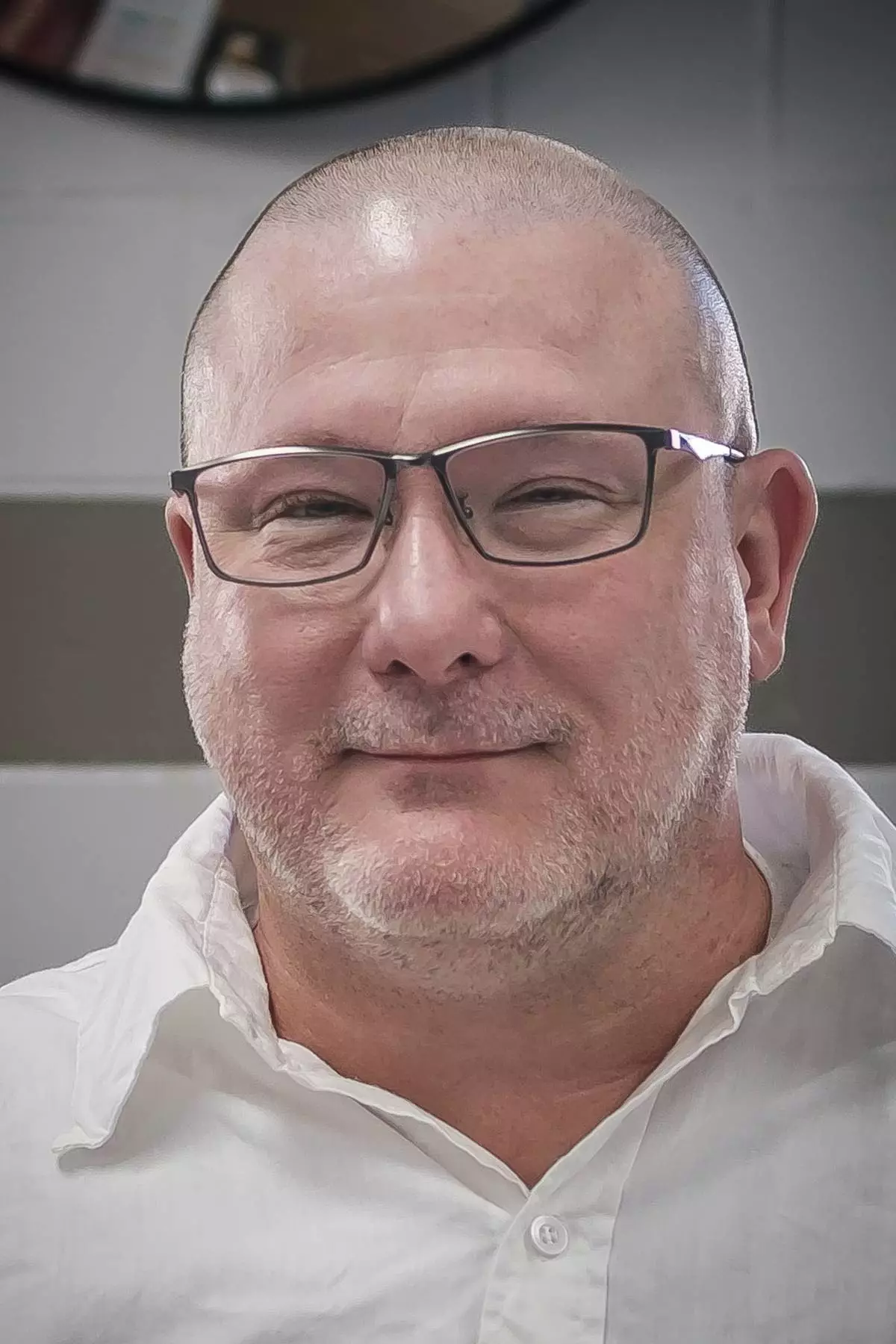
A photo released by the Federal Public Defender, shows inmate Brian Dorsey at the Potosi Correctional Center, Washington County, Missouri. Dorsey is scheduled to be executed Tuesday, April 9, 2024, for killing two people in 2006. (Jeremy Weis, Federal Public Defender via AP)
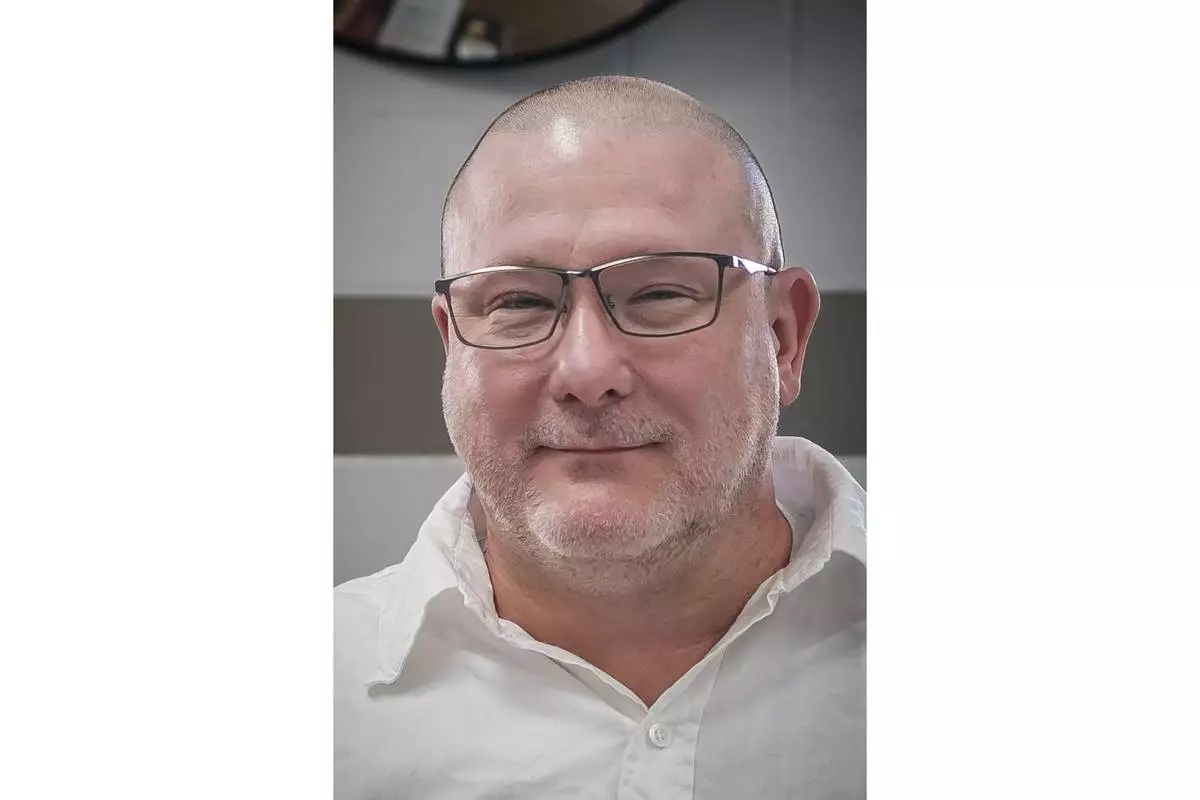
A photo released by the Federal Public Defender, shows inmate Brian Dorsey at the Potosi Correctional Center, Washington County, Missouri. Dorsey is scheduled to be executed Tuesday, April 9, 2024, for killing two people in 2006. (Jeremy Weis, Federal Public Defender via AP)












